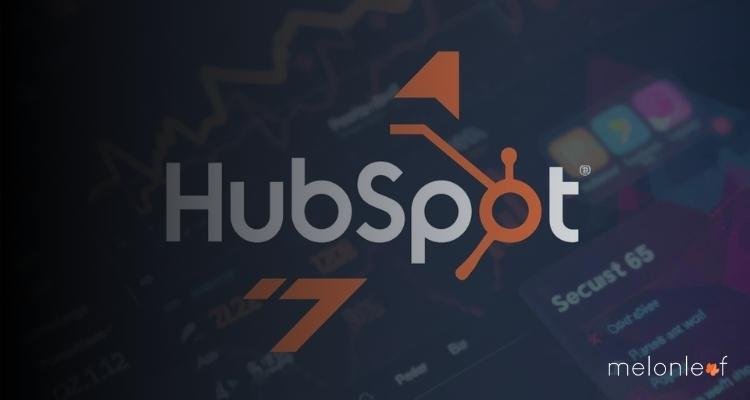The healthcare sector is constantly looking for ways to improve patient care. Enterprise Resource Planning (ERP) systems revolutionize how the healthcare sector operates. With the help of ERP tools, health care practitioners can focus on providing better care and less on administrative work.
Let us look deeper into how ERP systems work and are transforming the future of healthcare.
What are Healthcare-Related ERP Systems?
ERP systems for healthcare are software tools that integrate several functions such as patient administration, billing, tracking of inventory, and human resources into a single and unified solution. Through an ERP system, the health care industry reduces the amount of time lost on repetitive tasks and can avoid errors.
Example – A calendar of appointments for patients, ordering medical products, and billing can all be completed by a single program within a hospital using an ERP system.
Features of Healthcare ERP Systems
Centralized Data Management
ERP systems store all critical data—like patient records, financial information, and operational details—in one location. This means healthcare staff can quickly access accurate information whenever needed.
Inventory and Supply Chain Tracking
Hospitals and clinics can track medical equipment, supplies, and medicines in real time. Alerts for low stock levels prevent shortages, ensuring smooth operations.
Enhanced Patient Experience
By improving scheduling, reducing waiting times, and making billing easier, ERP systems create a hassle-free experience for patients.
Regulatory Compliance
Healthcare providers must follow strict rules and regulations. ERP systems simplify this by helping with proper documentation and record-keeping, which makes audits stress-free.
Benefits of ERP Systems in Healthcare
1. Simplified Operations
- Automates Repetitive Tasks: ERP systems handle tasks like payroll, billing, and patient admissions with minimal manual input, reducing errors.
- Streamlines Processes: Integrates scheduling, insurance checks, and medical records into a unified system for faster operations.
- Frees Up Staff Time: Healthcare teams spend less time on paperwork and more on providing excellent patient care.
2. Cost Savings
- Reduces Waste: Tracks inventory efficiently to prevent overstocking or shortages, minimizing unnecessary expenses.
- Cuts Administrative Costs: Automation reduces reliance on manual processes, lowering operational overheads.
- Identifies Cost Efficiencies: Provides insights into areas like staffing and energy use for smarter budgeting.
3. Better Teamwork
- Centralizes Information: Ensures doctors, nurses, and administrators can access the same data in real time.
- Improves Communication: Features like shared calendars and messaging enhance coordination across teams.
- Facilitates Collaboration: Breaks down silos, allowing teams to work together seamlessly for better patient outcomes.
4. Smarter Decisions
- Provides Real-Time Data: Tracks trends like patient admissions or resource usage for accurate forecasting.
- Enables Data-Driven Planning: Dashboards and reports help decision-makers understand performance and allocate resources.
- Supports Quick Responses: Timely insights empower leaders to adapt strategies and address challenges effectively.
5. Improved Patient Care
- Enhances Record Access: Doctors can quickly retrieve detailed patient histories, improving diagnostic accuracy.
- Reduces Wait Times: Streamlined scheduling and automated reminders ensure faster care delivery.
- Personalized Treatment: Centralized data enables healthcare teams to provide more focused and tailored care.
6. Enhanced Data Security
- Safeguards Patient Records: Encryption ensures that sensitive information remains protected from cyber threats.
- Limits Access: Role-based controls allow only authorized personnel to view or modify specific data.
- Ensures Compliance: Helps healthcare providers meet legal requirements like HIPAA for data protection.
Salesforce Health Cloud and ERP Systems
One standout tool in healthcare technology is Salesforce Health Cloud, a cloud-based platform that focuses on improving patient care. When combined with ERP systems, Salesforce Health Cloud takes efficiency and personalization to the next level.
Key Features of Salesforce Health Cloud:
- Unified Patient Management: Offers a complete view of patient history and needs in one place.
- Team Collaboration: Provides tools for seamless communication among care teams.
- Data Security: Ensures sensitive patient information is protected.
- Actionable Insights: Uses advanced analytics to boost care quality and operational performance.
By integrating Salesforce Health Cloud with an ERP system, healthcare providers can deliver more personalized, efficient, and reliable care.
How to Choose the Right ERP System for Healthcare
- Know Your Needs
Understand your organization’s size, patient volume, and specific challenges. - Look for Growth Potential
Choose a system that can grow with your healthcare organization. As demands increase, your ERP should adapt without significant changes. - Ensure Integration
The ERP system must work seamlessly with tools like Salesforce Health Cloud and other software your team uses. - Partner with Experts
Collaborate with a trusted provider, such as a top Salesforce solution consultant, to ensure smooth implementation and ongoing support.
Future of ERP in Healthcare
The future looks bright for ERP systems in healthcare particularly with the development of technologies like AI and ML. For instance, AI can assist in understanding the needs of a patient or the identify patterns in patient’s data to provide more efficient patient care.
Since more people are using telemedicine now, ERP systems will also be crucial in managing remote consultations, online health records, and virtual interactions with patients.
Melonleaf Consulting for Effective Healthcare ERP Systems
Just as experts are required in using tools such as Salesforce Health Cloud, implementing ERP systems also requires people with knowledge in the concerned areas. Melonleaf Consulting, one of the top leaders in Salesforce solutions, focuses on providing reliable ERP solutions. We handle every aspect right from strategizing, implementing, sustaining to providing troubleshooting assistance and some training as well. Our team ensures a seamless experience for healthcare organizations.
Conclusion
To get the most out of your ERP system, trust experienced partners like Melonleaf Consulting to guide you. With the right solutions in place, your healthcare organization can achieve excellence and deliver outstanding care to patients.












